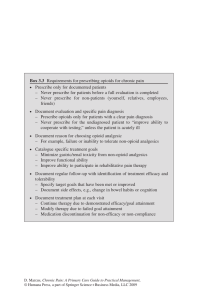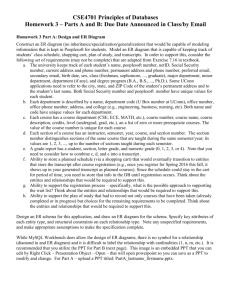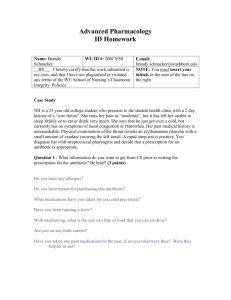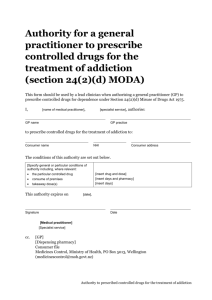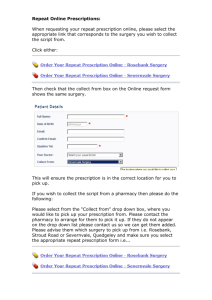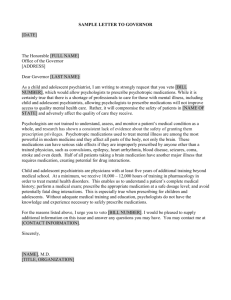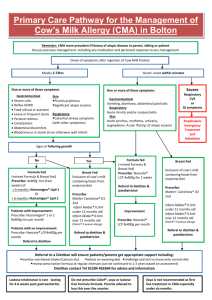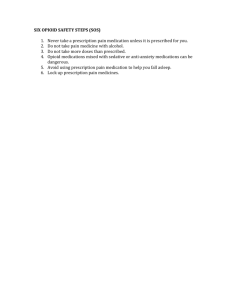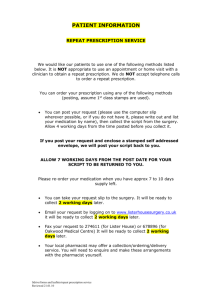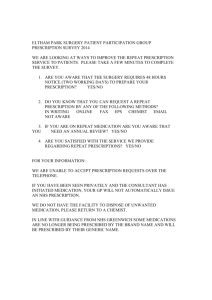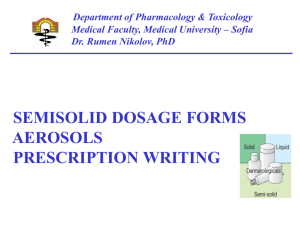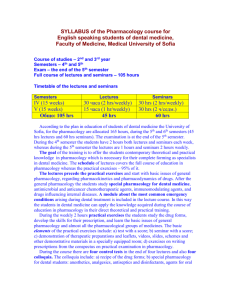Prescription Writing Exercises
advertisement
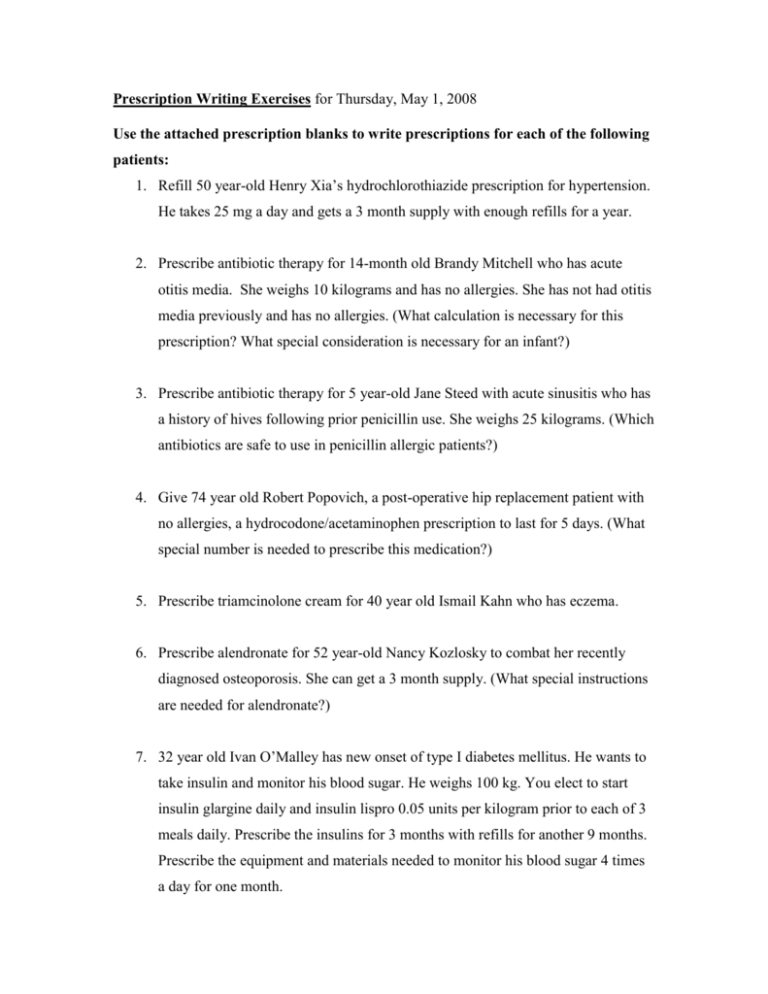
Prescription Writing Exercises for Thursday, May 1, 2008 Use the attached prescription blanks to write prescriptions for each of the following patients: 1. Refill 50 year-old Henry Xia’s hydrochlorothiazide prescription for hypertension. He takes 25 mg a day and gets a 3 month supply with enough refills for a year. 2. Prescribe antibiotic therapy for 14-month old Brandy Mitchell who has acute otitis media. She weighs 10 kilograms and has no allergies. She has not had otitis media previously and has no allergies. (What calculation is necessary for this prescription? What special consideration is necessary for an infant?) 3. Prescribe antibiotic therapy for 5 year-old Jane Steed with acute sinusitis who has a history of hives following prior penicillin use. She weighs 25 kilograms. (Which antibiotics are safe to use in penicillin allergic patients?) 4. Give 74 year old Robert Popovich, a post-operative hip replacement patient with no allergies, a hydrocodone/acetaminophen prescription to last for 5 days. (What special number is needed to prescribe this medication?) 5. Prescribe triamcinolone cream for 40 year old Ismail Kahn who has eczema. 6. Prescribe alendronate for 52 year-old Nancy Kozlosky to combat her recently diagnosed osteoporosis. She can get a 3 month supply. (What special instructions are needed for alendronate?) 7. 32 year old Ivan O’Malley has new onset of type I diabetes mellitus. He wants to take insulin and monitor his blood sugar. He weighs 100 kg. You elect to start insulin glargine daily and insulin lispro 0.05 units per kilogram prior to each of 3 meals daily. Prescribe the insulins for 3 months with refills for another 9 months. Prescribe the equipment and materials needed to monitor his blood sugar 4 times a day for one month. 8. Prescribe 18 year old Ivan Gasnorski, who has left eye bacterial conjunctivitis, combined polymyxin B and trimethoprim drops. 9. Prescribe azelastine nose spray and fluticasone nose spray for 28 year-old Francoise Delorm who gets allergic rhinitis for 6 to 8 weeks each Spring and each Fall. 10. 77 year-old Letitia Black has a urinary tract infection. She has a history of high blood pressure, atrial fibrillation and iron deficiency anemia. Her current medications are: warfarin 5 mg a day, iron 150mg twice a day, lisinopril 5 mg a day, and acetaminophen 650 mg 4 times a day as needed for pain. The patient has a history of penicillin-induced wheezing. Write a prescription for an appropriate drug to treat her urinary tract infection. Hints: For help with writing Rxs for specific diagnoses, go to Up-To-Date and look in the treatment section for drugs of choice; for drug forms, check the Medical Letter, the online hospital formulary (particularly Micromedex), or see sources like Goodman and Gilman or the Tarascon Pocket Pharmacopoeia. Order Writing Exercises for Thursday, May 1, 2008 I. A. Write a set of admission orders for Philip Johnson, a 65 year old patient of Dr. Mahoney’s, admitted to the hospital for evaluation of crushing substernal chest pain of 1 hour’s duration that occurred yesterday afternoon (12 hours ago). He comes in taking only prn acetaminophen and a daily multivitamin. He has an LDL of 176 and an HDL of 37. BP is 135/75, pulse is 88, respirations are 16, and temperature is 986 F (oral). Examination including heart and lungs is normal. B. Mr. Johnson is proven to have had a small myocardial infarction but is clinically stable and refuses cardiac catheterization. Write a set of discharge orders to include his medication II. Write a set of admissions orders for Ulam Watkins, a 68 year old patient of Dr. Middleton’s, in previously good health who comes in with influenza, pneumonia and dehydration. A one pack per day smoker, Mr. Watkins is vigorously coughing. He has no allergies. On examination he has rales in the right lung base and is wheezing diffusely. He is slightly cyanotic. BP = 110/60 lying and 95/60 sitting; P = 95; T = 102F (oral); respiratory rate = 24. The remainder of the examination including cardiac and neurologic examinations is normal. Hints: Many house staff manuals have guidelines for treatments of these types of problems. Try the Washington Manual or go to Up-To-Date online for guidance.
